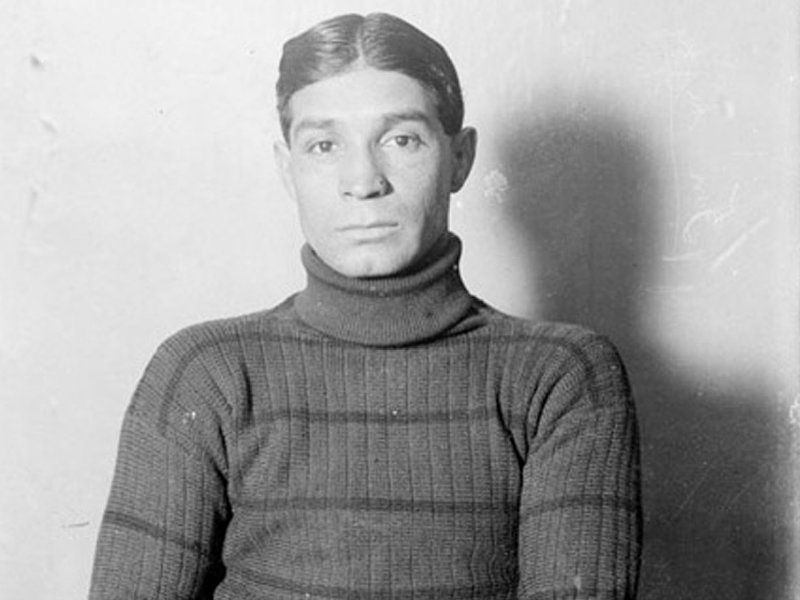Aurelio Herrera
- David Hegler

- May 10, 2021
- 3 min read

The San Francisco Bay Area has produced its share of excellent prize fighters. Aurelio Herrera was one of the first to come out of the city of San Jose and is the first famous boxer of Latin American origin. Born to Mexican immigrants, his life was hard but he persevered and triumphed as a fighter at the turn of the century. This is his story.
The Journey
Aurelio Herrera was born on June 14, 1876 in San Jose, California. A short while later, he moved with his family to Bakersfield where he harvested grapes to support his family. As a teenager, he learned the sweet science of boxing at the Bakersfield Athletic Club, a venue which not only promoted boxing events but also gambling and prostitution. Legend has it that one night while he was dealing at the gambling tables a man came into the club brandishing a gun and tried to kill the club’s founder, Frank Carrillo. Herrera left his table and slugged the crook.
Carrillo was impressed and took him under his wing, teaching him the finer points of prizefighting and having him fight in the club’s cellar. After the two tired of Bakersfield, they went on to other cities around Central and Northern California, challenging the best those cities had to offer. Records are a bit hazy about his early career and his professional career either began against Woo Sing in 1893 or Charles Todd, defeating both. He would go on to win his first 26 professional fights, defeating the likes of Joe Welch, Mike Thornton, Pat Daly and Jim Barry.

On February 11, 1900, Herrera drew against Tom Sullivan. He won twice more against Toby Irwin and Tommy Cox within the next year before beginning the only lengthy slide of his career. The slide began on May 29, 1901 at Mechanic’s Pavilion in San Francisco, losing to Terry McGovern in five rounds. Two months later he lost to Tim Hegarty and by early September of that same year he had lost to Billy DeCoursey. His slide ended after a draw to Hegarty.
Nearly three weeks after his draw against Hegarty, Aurelio Herrera defeated Tommy Mowatt and in December of that same year, he defeated George Baker. After losing to Tim Hegarty, Herrera defeated Billy Wilson in his professional debut. One month later, Herrera fought Tim Hegarty for the final time. After 20 rounds, the fight ended in a draw. In four fights with Hegarty, Herrera lost twice and tied twice.
Herrera won the next four fights before losing to Abe Attell for the right to contend for the vacant featherweight title. It was the last great opportunity that Herrera would ever have to claiming that elusive title. After losing to Attell, Aurelio Herrera won his next 17 fights. During that lengthy streak, Herrera defeated prize fighters such as Caesar Attell, Tommy Herman, Jack Kingsley, Wisconsin Kid and Cyclone Johnson among others.
The streak ended in Vancouver on October 15, 1903 with a tie to Louie Long. He would never win more than three games in a row again. In March of 1904, he fought Benny Yanger to a draw. Before the fight began, Aurelio Herrera believed that it was a very winnable fight with Yanger having the tendency to fight within close range of his opponent, a dangerous tactic for Yanger during longer bouts. However, after the draw in the first fight, Herrera realized that Yanger was truly a scrappy fighter who would not go down easily and that he could not take Yanger lightly.
In their second bout, Benny Yanger was ahead in points in the eighth round when Herrera unloaded a bevy of left-handed blows before unleashing a powerful right towards Yanger’s chin. That last blow left Yanger dazed and after another blow fell to the mat. Though he got up before being counted out, Yanger was soon felled again, this time for good and Aurelio Herrera won the bout.
On January 12, 1906, he fought Young Corbet II, the former featherweight champion. Herrera knocked Corbett out in five rounds. It would be the last truly memorable moment of his career. The rest of career consisted of fewer wins and more draws. Herrera’s final fight was on September 23, 1909 in Scribner Opera House of Bakersfield, losing to Dick Hyland in six rounds.
He ended his career with 68 wins, 12 losses and 15 draws. Throughout his career, he never saved any of his money and soon after he retired, he found himself in financial stress. In 1927 he was sentenced to 10 days in jail for vagrancy. He died on April 2, 1927, just two months after his release from jail.



Comments